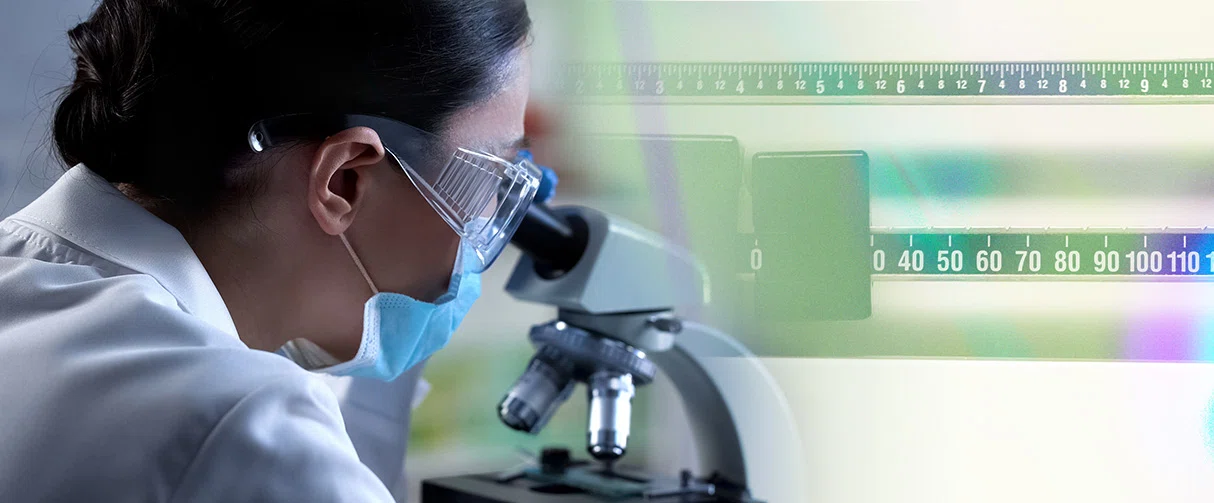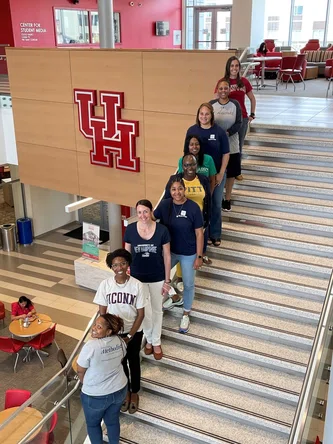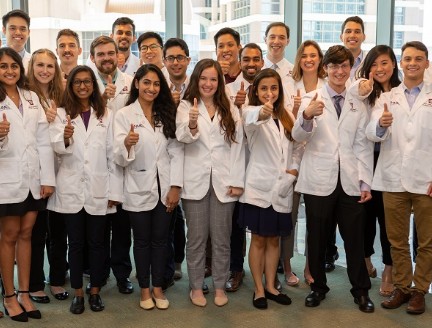


Innovative Education
Mentoring Program to Promote Inclusivity in Biomedical Research
Houston Methodist’s Amy Waterman and LaShara Davis are participating in the National Heart, Lung and Blood Institute Programs to Increase Diversity Among Individuals Engaged in Health-Related Research.

Even before his official foray into politics, former President Barack Obama looked up to South African leader-humanitarian-activist Nelson Mandela for inspiration — Mandela’s release from prison gave Obama “a sense of what human beings can do when they’re guided by their hopes and not by their fears.” This example and others serve as reminders that the representation of one’s community, culture, ethnicity and race is vital for not just inspiration but for pushing back against stereotypes and overcoming barriers that exist within society.
Within the STEM fields, some demographics earn fewer masters and PhDs than others, with census data showing that 31% of science and engineering professionals identify as Black, Latinx and Native Americans. Hence, these communities are poorly represented in clinical and research positions.
Working toward a more equitable representation in biomedical research at Houston Methodist, Amy Waterman, PhD, director of Patient Engagement, Diversity and Education, is a participating mentor in the National Heart, Lung and Blood Institute (NHLBI) Programs to Increase Diversity Among Individuals Engaged in Health-Related Research. She is currently working with mentee LaShara Davis, PhD, assistant professor in the Department of Surgery, in the NHLBI-funded Obesity Health Disparities (OHD) program which focuses on obesity prevention, treatment and community-based interventions.
“I am excited to have the opportunity to expand my research to include obesity, which is the single-most intervenable factor leading to chronic diseases such as hypertension, diabetes, and ultimately kidney disease,” said Davis. “My hope is that this research can help guide the development of future health messaging that better encourages prevention of obesity and other chronic diseases.”
The OHD Programs to Increase Diversity Among Individuals Engaged in Health-Related Research is an all-expense-paid Summer Institute, research education and mentoring initiative that is structured to address the difficulties faced by early-career scientists in establishing an independent, research path toward the upper academic echelons. The program’s main focus is to increase the number of scientists from underrepresented communities and with disabilities by preparing them to successfully compete for federal research funding.
“The key is having leading researchers team up with the next generation of researchers, particularly connecting those studying areas that relate to obesity and kidney disease to help them succeed in their academic careers,” said Waterman. “And when LaShara applied and accepted after a competitive application process, I was thrilled to be one of her mentors.”
Specifically, NHLBI's OHD Programs to Increase Diversity Among Individuals Engaged in Health-Related Research is a two-year training program consisting of interactive sessions and meetings. Accepted candidates take courses in obesity research, learn data collection and analysis techniques, grant writing and other skills needed for a successful scientific career. In addition, participants have the opportunity to compete for a Small Research Project (SRP) for pilot funds and interact with NHLBI scientific program staff in grants-focused technical assistance workshops.

Although Davis is still in the first year of the program, she has already learned some important lessons, including ways to structure her time to maximize time dedicated to grant writing among other responsibilities. Further, interacting with other early-career faculty in her cohort during the grant writing process greatly contributed to the quality of her research proposal.
“To have an avenue in the program where participants could share ideas was really awesome,” said Davis. “So, for example, if I see an article that might be a good resource for a grant proposal that another person is working on, I might reach out and say, ‘This might apply to what you're doing.’ We try to help each other to be successful.”
Along with Waterman, Davis interacts and receives guidance from other Houston Methodist faculty, including A. Osama Gaber, MD, John F., Jr. and Carolyn Bookout Presidential Distinguished Chair in Surgery. His commitment to her success and support in all of her academic endeavors has been critical to her professional success, Davis said.
Davis envisions her future role in helping to support others in programs such as OHD Programs to Increase Diversity Among Individuals Engaged in Health-Related Research. “Giving back to a program that has given me so much is certainly something I really want to do, but I also look forward to opportunities around Houston Methodist, whether it is working with high school scholars, interns, postdocs or medical students who are doing research,” said Davis. "I want to reach my hand and help pull them up so that they can have even better success than I have had."
Vandana Suresh, PhD, July 2022








